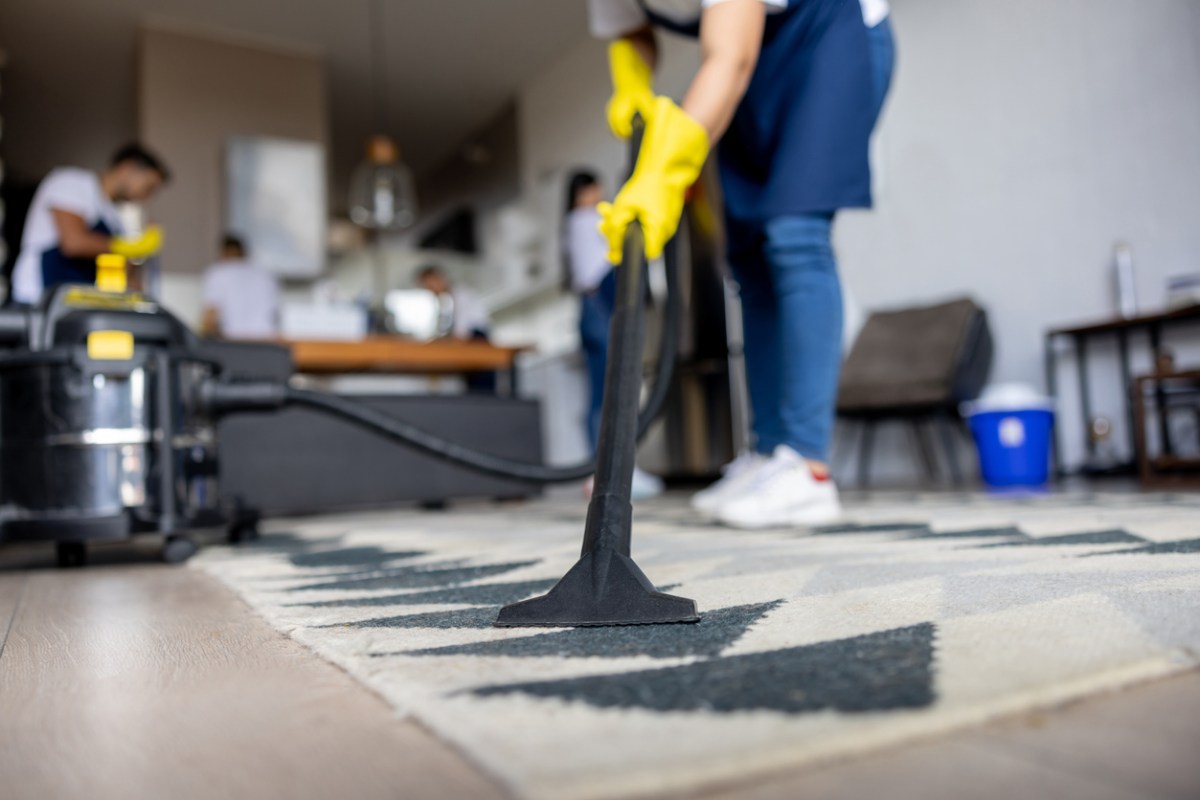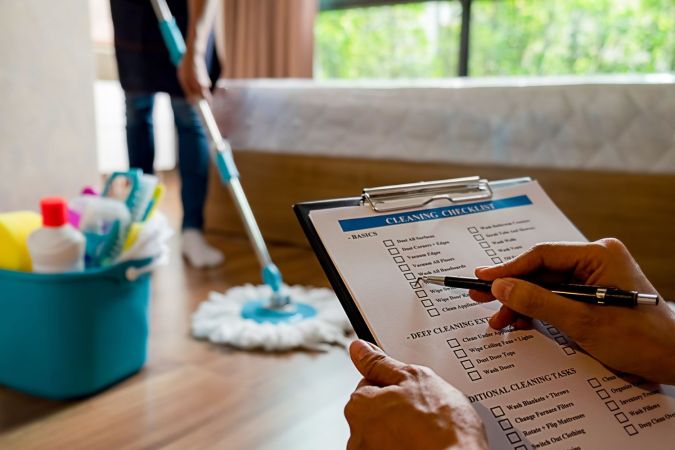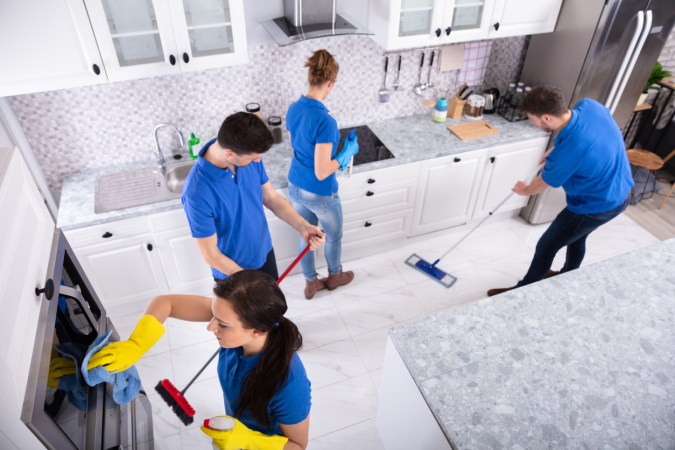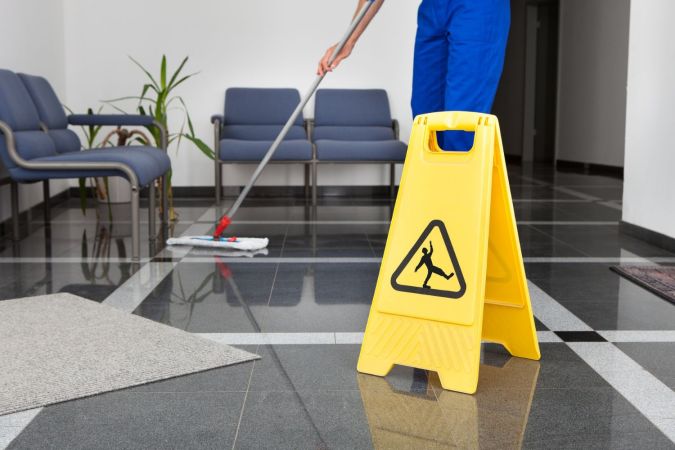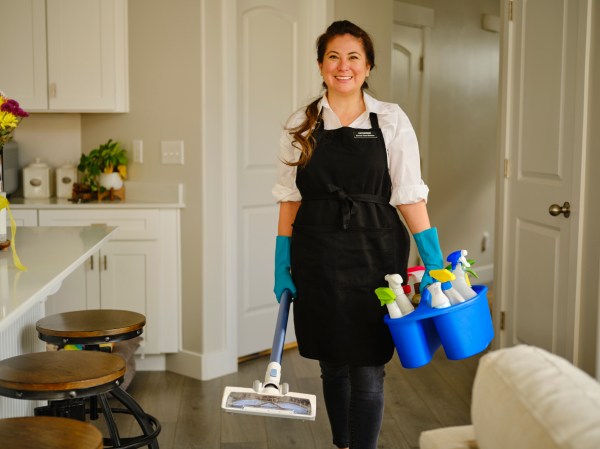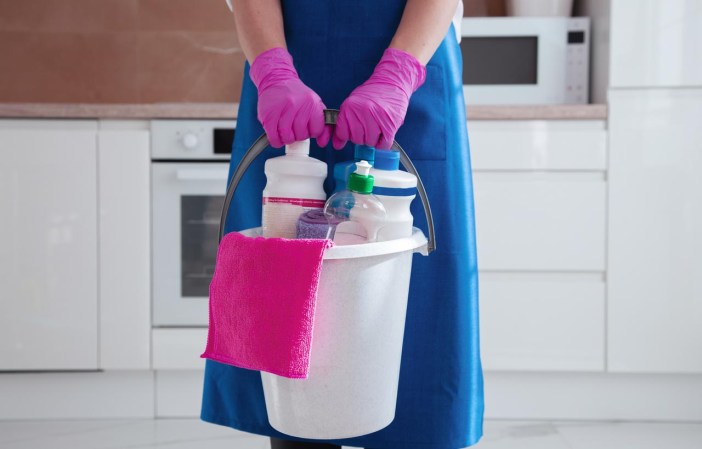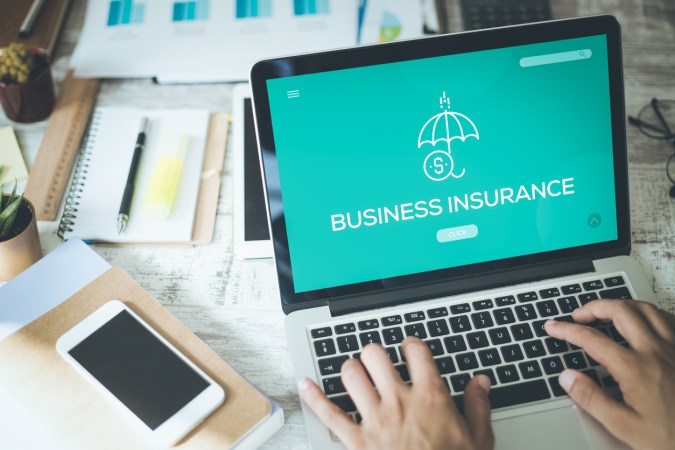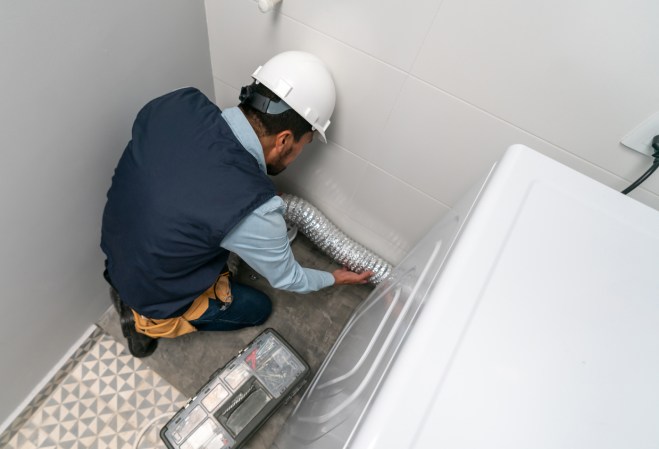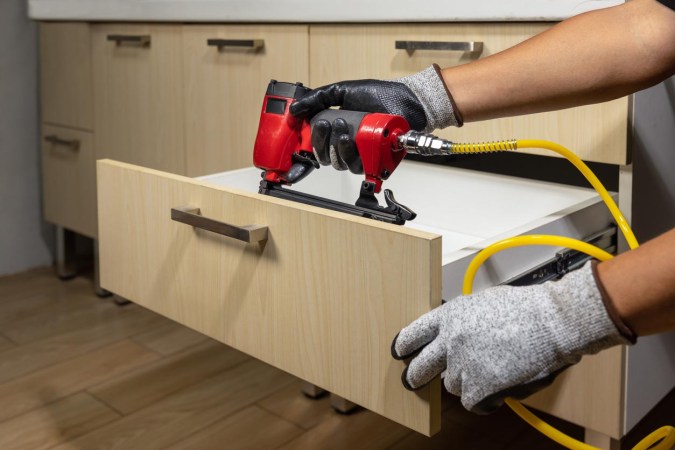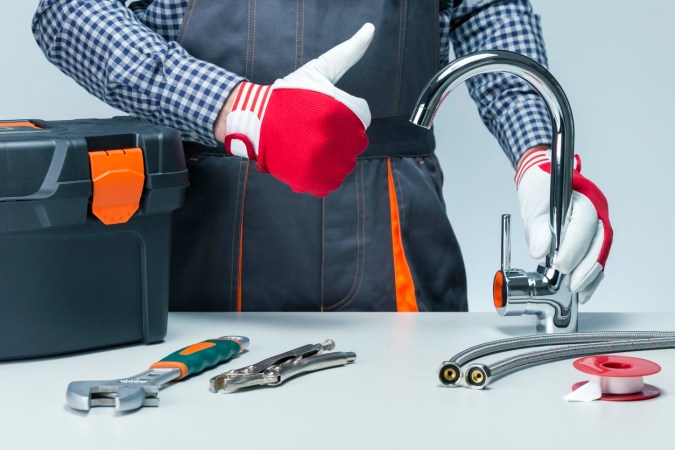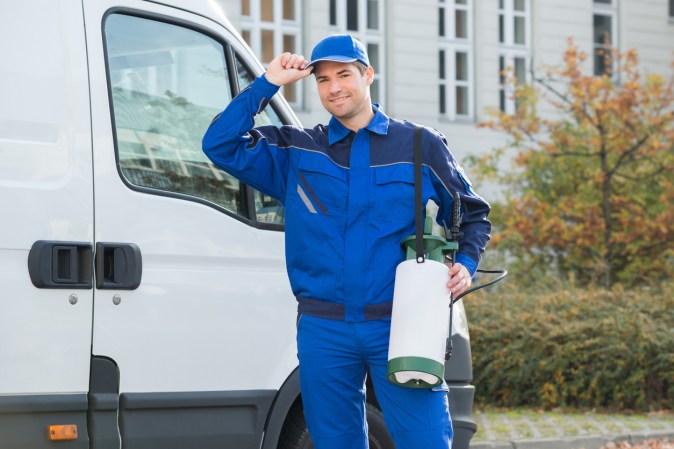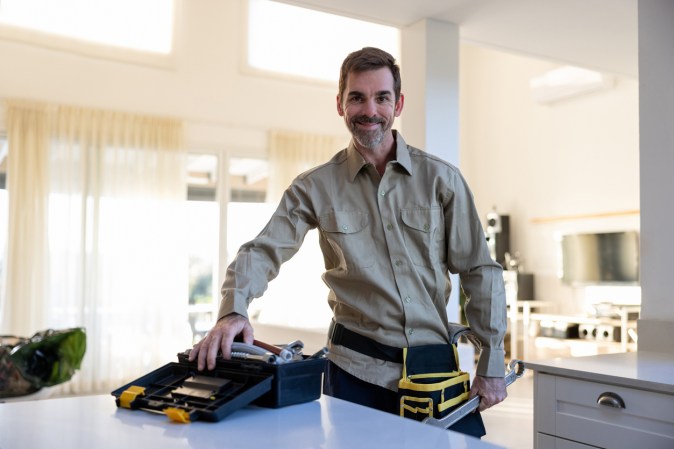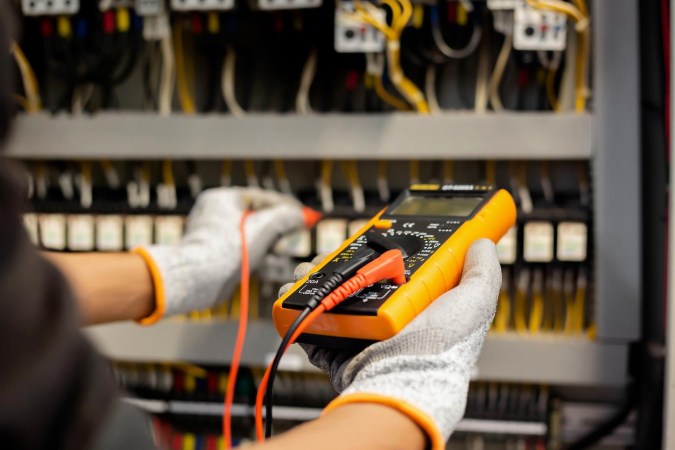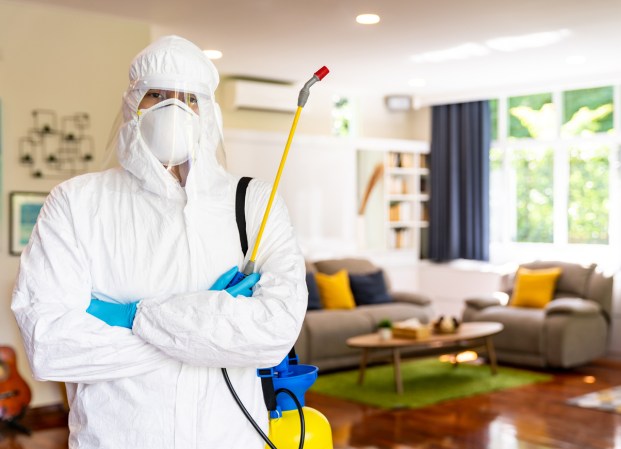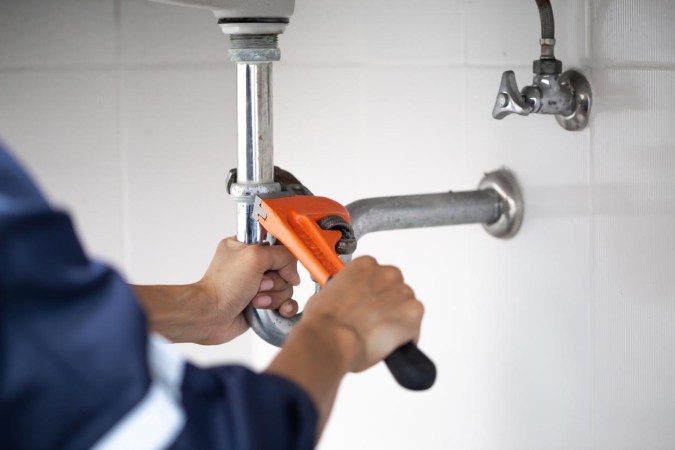We may earn revenue from the products available on this page and participate in affiliate programs. Learn More ›
Highlights
- The typical cost range for a cleaning-business license is between $100 and $500.
- The main factors that will affect the cost of a cleaning-business license include the size and structure of the business, the type of services offered, the geographic location of the business, and the types of licenses needed.
- A cleaning-business license may be required by the business owner’s state of residence for legal operation; in addition, clients may not want to hire a business that does not have a license.
- Business owners who want to expedite the process of obtaining a license can look into services that package all information and materials them, like BizFilings.
Starting a cleaning business can be a promising venture, but it comes with various considerations, including the essential aspect of obtaining the necessary licenses and permits. The cost associated with acquiring a cleaning-business license is a key component of the overall business start-up cost. To legally operate a cleaning services business, an owner typically needs a combination of licenses, including a house-cleaning license, and if commercial cleaning services are offered, a commercial-cleaning license.
“There are no house cleaning licenses in any state,” explains Sharon Tinberg, residential home cleaning process and procedure expert for the International Sanitary Supply Association (ISSA). “Some states will require a business license to start a cleaning business, but there is no license for a cleaner.”
As costs can vary significantly from one place to another, the first step in opening a cleaning business is to research the license requirements in the specific area. Typically, the business owner will need to apply for a cleaning license that allows the owner to conduct business in their area. If they’re structuring their cleaning business as a limited liability company (LLC), they will also need an LLC license for the cleaning business. The best insurance for small businesses, such as Thimble Insurance, Progressive Commercial, and NEXT Insurance is also needed to protect both the business and its clients in the event of accidents or damage.
The cost of obtaining a business license for a cleaning business can range from $100 to $500, depending on the location, the type of services offered, and the regulatory requirements in the area. It’s crucial to factor these costs into the cleaning service business plan to ensure a clear understanding of the business start-up cost.
In some areas, an owner may also need a cleaning permit license, which is a specific permit for that particular line of work. These permit costs can add to the overall expense of getting the cleaning business off the ground. To get a more accurate estimate of the license and insurance costs for a cleaning business, it’s advisable to consult with the local government authorities or a business attorney who can guide an owner through the licensing process. Ultimately, budgeting for cleaning-business license cost is an important part of a business plan, and the license ensures that an owner is operating legally and confidently in the competitive cleaning industry.
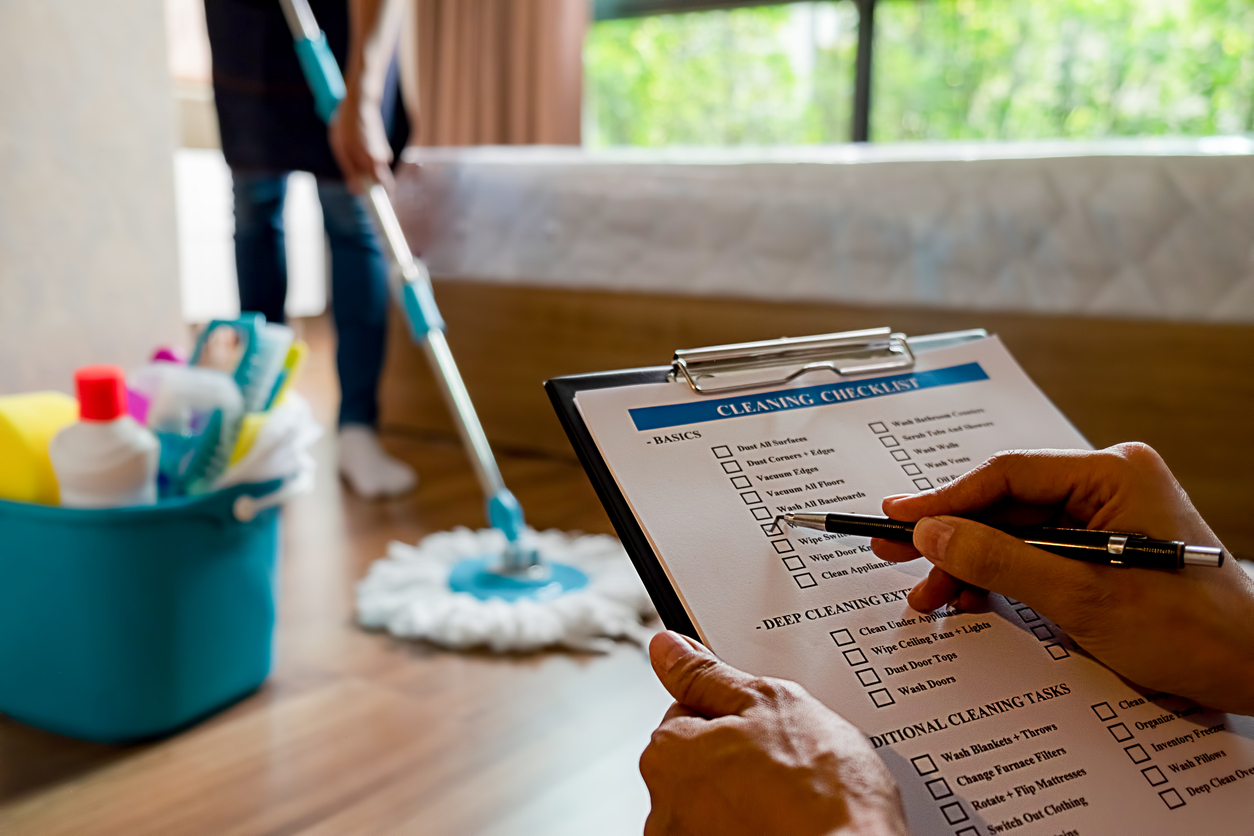
Factors in Calculating Cleaning-Business License Cost
Before they can start charging the going rate for house cleaning, owners will need to calculate the cost of a cleaning-business license. How much does a cleaning-business license cost? The factors involved in determining this cost can vary significantly, and they are influenced by both national averages and local considerations. The average national cost to get a cleaning license as an LLC ranges from $100 to $500. It’s essential for business owners to note that the national average is only a starting point and that the actual cost can fluctuate considerably based on the size and structure of the business, cleaning specialty, geographic location, and license type.
Business Size
The size of the cleaning business can significantly influence the cost to start a business. Generally, the larger the cleaning business, the higher the license cost is likely to be. It’s important for business owners to know the ways the business size can impact the cleaning-business license cost.
- Licensing fees. Many local governments base licensing fees on the size and scale of the business. Larger cleaning businesses typically have higher revenues and may require a more extensive range of licenses, permits, and inspections. These additional requirements often come with higher fees.
- Regulatory requirements. Larger cleaning companies may be subject to more rigorous regulatory requirements. For example, if a business offers specialized cleaning services, such as hazardous material cleanup, medical facility cleaning, or industrial cleaning, it may need additional licenses or certifications, which can be more expensive to obtain.
- Multiple locations. If the cleaning business has multiple locations or serves a broader geographic area, it may need licenses for each operating location. Each jurisdiction may have different licensing costs and requirements, which can further increase the expense.
- Employee count. The number of employees a business has can also affect licensing costs. Some areas may charge additional fees based on the number of employees to ensure compliance with labor laws and worker safety regulations.
- Insurance costs. As a business grows, it may need more comprehensive insurance coverage, which can increase the overall licensing costs. Larger businesses often require higher limits of liability insurance to protect themselves and their clients, which can be more expensive.
- Specialized services. If a cleaning business offers specialized services, such as biohazard cleanup or high-risk environmental cleaning, it may incur additional costs related to training, certifications, and licensing specific to those services.
Business Structure
The business structure an owner chooses for their cleaning business can have a significant impact on the cost of obtaining a business license. Different structures, such as a sole proprietorship, partnership, LLC, or corporation, can influence licensing costs and requirements in several ways.
- Sole proprietorship. As a sole proprietor, the owner is the sole owner of the business. The licensing costs for a sole proprietorship are typically lower because there is minimal complexity and administrative overhead. The owner may need a basic business license, but additional licenses or permits may be unnecessary. The costs are generally on the lower end and in some states as budget-friendly as $30.
- Partnership. In a partnership, two or more individuals share ownership of the business. The licensing costs can vary depending on the number of partners and the specific regulations in the area. Each partner’s role and responsibilities may also affect licensing requirements and costs.
- Limited liability company (LLC). An LLC is a common choice for small businesses since it offers liability protection for the owners. The cost of an LLC business license is typically moderate, and it includes both the formation of the business and annual renewal fees. The licensing process is relatively straightforward, with fees that are generally affordable for most small businesses.
- Corporation. A corporation is a more complex business structure, and licensing costs tend to be higher due to the additional administrative and regulatory requirements. In addition to a standard business license, corporations often face additional fees and formalities, such as filing articles of incorporation, submitting annual reports, and sometimes, paying higher taxes.
- Franchise. If an owner chooses to operate a cleaning business under a franchise, they may need to pay franchise fees and adhere to specific licensing and operational requirements set by the franchise company. These fees can vary widely depending on the franchise agreement.
Specialty Type
Specialized cleaning services often require additional licenses, permits, certifications, and regulatory compliance, which can increase the overall licensing cost.
- Hazardous materials cleaning. If a cleaning business specializes in mold remediation, asbestos removal, or biohazard cleanup, employees will need specialized training, certifications, and permits. These additional requirements typically come with higher costs due to the rigorous safety and environmental regulations associated with such services.
- Medical facility cleaning. Cleaning businesses that service medical facilities such as hospitals or clinics are often required to strictly adhere to health and safety regulations. To operate in this specialized niche, a business may need specific licenses and permits, such as health care facility cleaning permits.
- Carpet and upholstery cleaning. Specialized services such as carpet cleaning and upholstery cleaning may require specific training and equipment. Some jurisdictions require additional licensing for businesses that use certain cleaning chemicals or methods. The costs can vary depending on the region. Carpet cleaning costs can be higher than basic house cleaning to help cover the cost of this equipment.
- High-rise window cleaning. If a cleaning business specializes in high-rise window cleaning, its employees may need specialized training and equipment to ensure the safety of both the employees and the public. Some areas require specific licenses for businesses involved in high-risk activities (such as window cleaning), and these licenses can have higher costs. Window cleaning cost varies according to the number of panes, window size, and the degree of cleaning needed.
- Industrial cleaning. Industrial cleaning services often work in manufacturing or processing plants and may be required to adhere to environmental and safety regulations. The licenses and permits needed for industrial cleaning can be more complex and costly due to the potentially higher risks involved.
- Green cleaning services. Businesses that offer environmentally friendly or green cleaning services can have varying licensing requirements. Some areas may encourage or incentivize green cleaning practices with specific certifications and lower fees, while others may require businesses to meet certain environmental standards, which can involve additional costs.
Geographic Location
Licensing costs can vary widely from one place to another due to differences in local regulations, administrative fees, and the overall cost of doing business in a specific area.
- Local regulations. Different regions and municipalities have their own sets of rules and regulations governing businesses. These regulations dictate the types of licenses and permits required, and the associated fees can differ greatly. Some areas may have more stringent licensing requirements, which can translate into higher costs.
- Administrative fees. The cost of a business license required for a cleaning service can vary based on local administrative fees. Local governments set these fees, and they can range from modest amounts to several hundred dollars or more depending on the area. Urban areas and major cities may have higher fees than rural or suburban locations.
- Renewal costs. In some locations, business licenses must be renewed annually, and the renewal costs can vary by geographic region. The renewal fees are often a percentage of the initial licensing cost, and these fees can increase over time.
- Permits and additional requirements. Some areas may require specialized permits, such as environmental, health department, or fire department permits, depending on the services offered. These additional requirements can significantly impact licensing costs and may be more common in certain geographic regions.
- Competitive market. The cost of a cleaning-business license may also be influenced by the competitiveness of the local market. In highly competitive areas, local governments may keep fees lower to encourage business growth, while in less competitive regions, fees may be higher.
- Cost of living. The overall cost of living and doing business in a specific area can influence license costs. In regions with a higher cost of living, the fees associated with licensing are often higher to reflect the increased expenses faced by businesses in those areas.
- Taxes. Local tax policies can also impact licensing costs. Some areas may levy additional taxes or surcharges on businesses, which can affect the cost of doing business and obtaining licenses.
License Types
Different types of licenses may come with varying requirements, fees, and administrative processes. It’s important for business owners to understand how license type affects cleaning-business license cost.
- Basic business license. A basic business license is the most common type and is required for most businesses. It allows a business to operate legally within its jurisdiction. The cost for a basic business license is typically more affordable compared with the cost of specialized licenses. Whether it’s a one-time fee or an annual fee will vary depending on the location of the business.
- Specialized licenses. If a cleaning business offers specialized services such as hazardous materials cleanup, medical facility cleaning, or environmental cleaning, it may need additional specialized licenses. These licenses often come with higher costs due to the increased regulation, safety requirements, and the need for businesses to have specific training and certifications.
- Environmental permits. If a cleaning business handles environmental cleaning, it might need permits related to waste disposal, pollution control, or other environmental regulations. These permits can add to the licensing costs due to the complexity and monitoring associated with environmental compliance.
- Health department permits. Cleaning businesses that serve health care facilities or require compliance with health and safety standards may need health department permits. These permits typically require businesses to adhere to stringent regulations, and this can result in higher licensing costs.
- Fire department permits. If a cleaning business handles chemicals, flammable materials, or operates in fire-sensitive environments, fire department permits may be necessary. These permits can involve inspections and compliance requirements that impact licensing costs.
- Transportation licenses. Cleaning businesses that transport equipment, waste, or materials may require transportation licenses. The costs can vary based on the type of transportation and the jurisdiction’s regulations.
- Insurance and bonding. Although not technically a license, insurance and bonding costs can significantly affect a business’s licensing expenses. Depending on the type of coverage and the amount required, insurance and bonding costs can vary, but the average price range for insurance for a cleaning business can vary widely from $350 to $8,000 per year.
- Franchise or brand licenses. Owners who operate their cleaning business under a franchise or a specific brand may need to pay franchise fees or obtain a brand license. These costs can be unique to the chosen franchise and may include ongoing royalties.
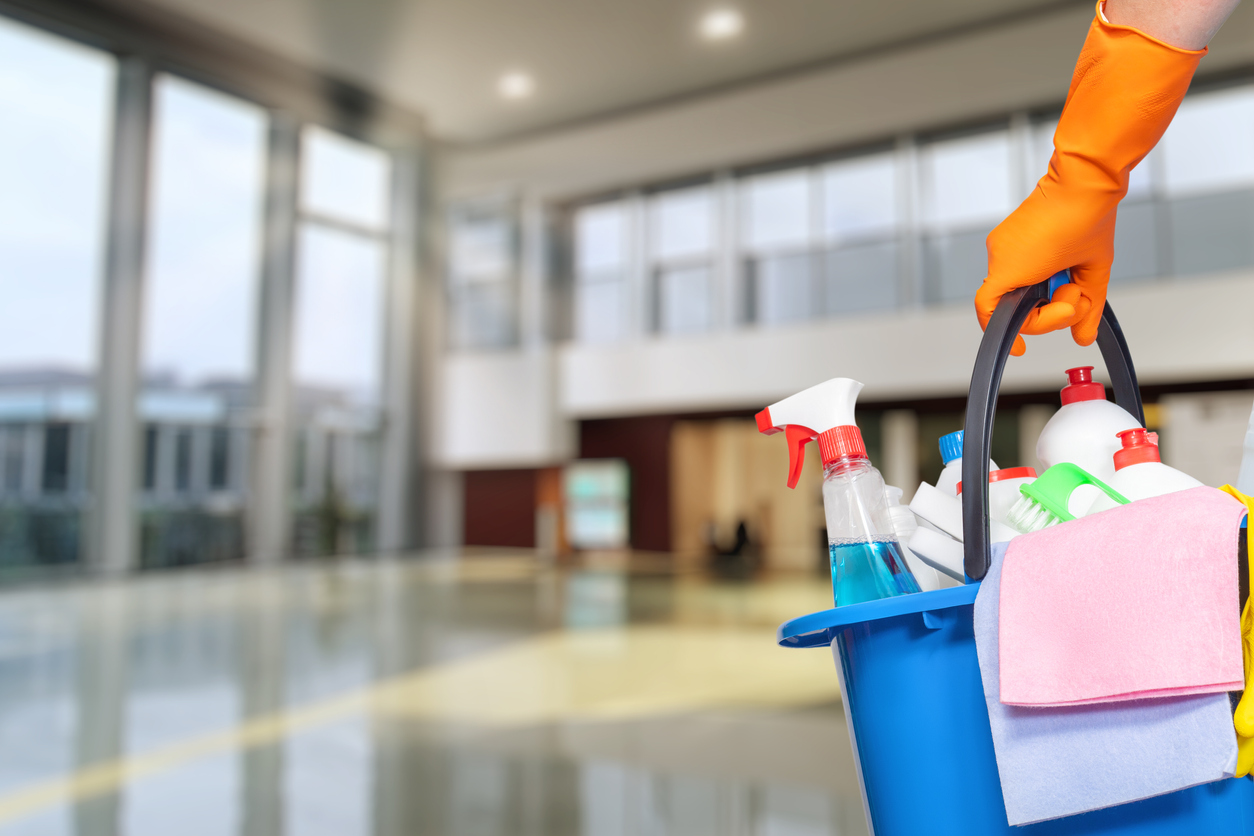
Types of Cleaning-Business Licenses
The type of cleaning-business license that’s needed is primarily determined by the services provided and the local regulations in the area. Understanding the specific type of license required and the associated costs is essential for budgeting and ensuring that the owner operates their cleaning business legally. Consulting with local authorities, regulatory agencies, or legal professionals can provide business owners with valuable insights into the licenses required for their particular business and any associated expenses.
General Business License
A general business license, also known as a business permit, is the most basic type of license needed to legally operate a cleaning business. This license authorizes a business to operate within a specific jurisdiction. The cost of a general business license varies widely based on location. In smaller towns and rural areas, it might cost a few hundred dollars or even less. However, in larger cities or urban centers, the cost can be substantially higher, ranging from a few hundred dollars to over a thousand dollars. The cost depends on factors such as the size of the cleaning business, the location, and the specific administrative fees set by the local government.
DBA (“Doing Business As”) License
A DBA, or “Doing Business As” license, is required if an owner chooses to operate their cleaning business under a name different from their personal name. This type of license allows them to establish a distinct business identity. The cost of a DBA license varies based on the location and the local regulations. Fees can be a one-time expense, or the license may require periodic renewal, depending on the local government’s rules.
Workers’ Compensation
Workers’ compensation insurance is not technically a license, but it is a crucial component of operating a cleaning business. The cost of workers’ compensation insurance can vary significantly based on factors such as the number of employees the business has, the type of cleaning services offered, and the jurisdiction. Cleaning businesses that handle hazardous materials or operate in high-risk environments may face higher workers’ compensation costs. On average, workers’ compensation insurance for a cleaning business can cost $2,000 per year.

Do I need a cleaning-business license?
Whether a business owner needs a cleaning-business license depends on several factors, including the nature and location of the business operations, the type of services it provides, and local regulations. There are a few key considerations that may determine whether a cleaning-business license is needed or recommended. Business owners can turn to services like BizFilings, which can help them easily locate and fill out licensing applications and documents.
State Requirements
State requirements are a compelling reason to obtain a cleaning-business license. Each state in the United States has its own set of regulations and requirements governing business operations, and this includes cleaning services. Here’s why a business owner will want to consider state requirements and not skip the step of obtaining a business license.
- Legal compliance. State requirements for business licenses are designed to ensure that cleaning businesses operate within the framework of the law. By obtaining the necessary license, the owner demonstrates a commitment to legal compliance, which can help them avoid penalties, fines, or legal issues.
- Consumer trust. Having a state-issued license adds credibility to the cleaning business. When a business has the proper licensing, it can lead to more clients and increased business opportunities.
- Access to resources. In many states, licensed cleaning businesses gain access to resources, networking opportunities, and business development programs that can help them grow and thrive. These resources can be beneficial for business expansion and staying competitive.
- Consumer protection. State requirements often include consumer protection measures, such as dispute resolution processes or insurance coverage. These protections are in place to safeguard consumers who hire cleaning services.
Client Requirements
Many clients, especially commercial clients and businesses, have specific expectations when it comes to the cleaning services they hire and the commercial cleaning prices they pay. Here’s why meeting client requirements through proper licensing is important.
- Professional image. Clients often prefer to work with the best cleaning services since it conveys professionalism and commitment to quality. A license helps assure clients that the business is a legitimate and trustworthy service provider.
- Contractual agreements. Many clients, especially in the commercial sector, have contractual requirements that mandate they work only with licensed and insured vendors. Meeting these requirements is often a prerequisite for a business owner to secure and maintain lucrative contracts.
- Liability coverage. Clients may request proof of liability insurance as part of their requirements. Businesses that have a license are often likely to have the necessary insurance coverage, too, which is essential in case of accidents or damage to the client’s property during the cleaning process.
- Adherence to regulations. Some clients, particularly those in industries such as health care or food service, may have strict regulatory requirements that their cleaning service providers must meet. This can include adhering to health and safety standards, environmental regulations, or specialized training, all of which are often tied to licensing.
- Client trust. When a business demonstrates that it holds the appropriate licenses, it instills trust and confidence in the clients. Clients are more likely to engage a service when they know the business meets or exceeds the legal and industry standards.

Questions to Ask About Cleaning-Business Licenses
When considering cleaning-business licenses, it’s important for the business owner to ask the right questions to ensure that their business is compliant and that they have all the necessary permits and licenses.
- What type of license do I need?
- How much does the license cost?
- Are there renewal fees?
- What are the application requirements?
- What are the local regulations?
- Do I need insurance?
- Are there any environmental or safety standards to meet?
- What are the penalties for noncompliance?
- Can you help with the application process?
- Are there industry associations or resources?
- How long does it typically take to obtain a license?
- What are the training and certification requirements?
- Can you provide references or case studies of similar cleaning businesses?
- How can I stay informed about regulatory changes?
FAQs
Licensing expenses can vary widely based on several factors, including location, the type of services provided, and the licenses and permits specific to the business. Individuals who are starting a new cleaning business may have some specific questions regarding licensing and the cleaning industry in general. Knowing the answers to these questions can help them navigate the process with confidence.
Q. How long does it take to get a business license?
While there is no fixed timeline for obtaining a business license, it’s generally advisable to begin the application process well in advance of when you plan to start your business. This allows for any unforeseen delays and ensures that you have all the necessary permits and licenses in place before beginning operations. If you have specific concerns or time constraints, consider consulting with local authorities or a business adviser who can provide guidance on the expected processing times in your area, since it can take from a single day to several months.
Q. Are cleaning services taxable in the U.S.?
Sales tax regulations vary across states and they are primarily imposed on retail sales. A significant number of states have exemptions in place for services, meaning that services are generally not subject to sales tax. The application of sales tax depends on the location where your cleaning services are performed. If you find yourself providing services in multiple states for the same client, you may need to create itemized invoices and calculate and apply the applicable sales tax for each state.
To determine the specific tax requirements in your area, it’s advisable to consult your state’s Department of Revenue or Taxation or a tax professional who can provide guidance tailored to your location and the nature of your cleaning business. Staying compliant with sales tax regulations is important to avoid potential penalties and legal issues.
Q. What type of cleaning business makes the most money?
The profitability of a cleaning business depends on various factors, including the market demand, location, the quality of services, and business management. Some types of cleaning businesses tend to have higher earning potential than others due to market demand and the nature of the services provided. The types of businesses that make the most money are residential and commercial cleaning, the best carpet cleaning companies, pressure washing services, pool cleaning, chimney cleaning, trash bin cleaning, gutter cleaning, and the best window cleaning services.
Q. What business structure is best for a cleaning company?
A limited liability company (LLC) is the most common business structure for a cleaning company. An LLC provides personal liability protection, meaning your personal assets are generally shielded from business debts and legal liabilities. Having an “LLC” in your business name lends credibility to your cleaning company.
Sources: The Janitorial Store, Taskbird

